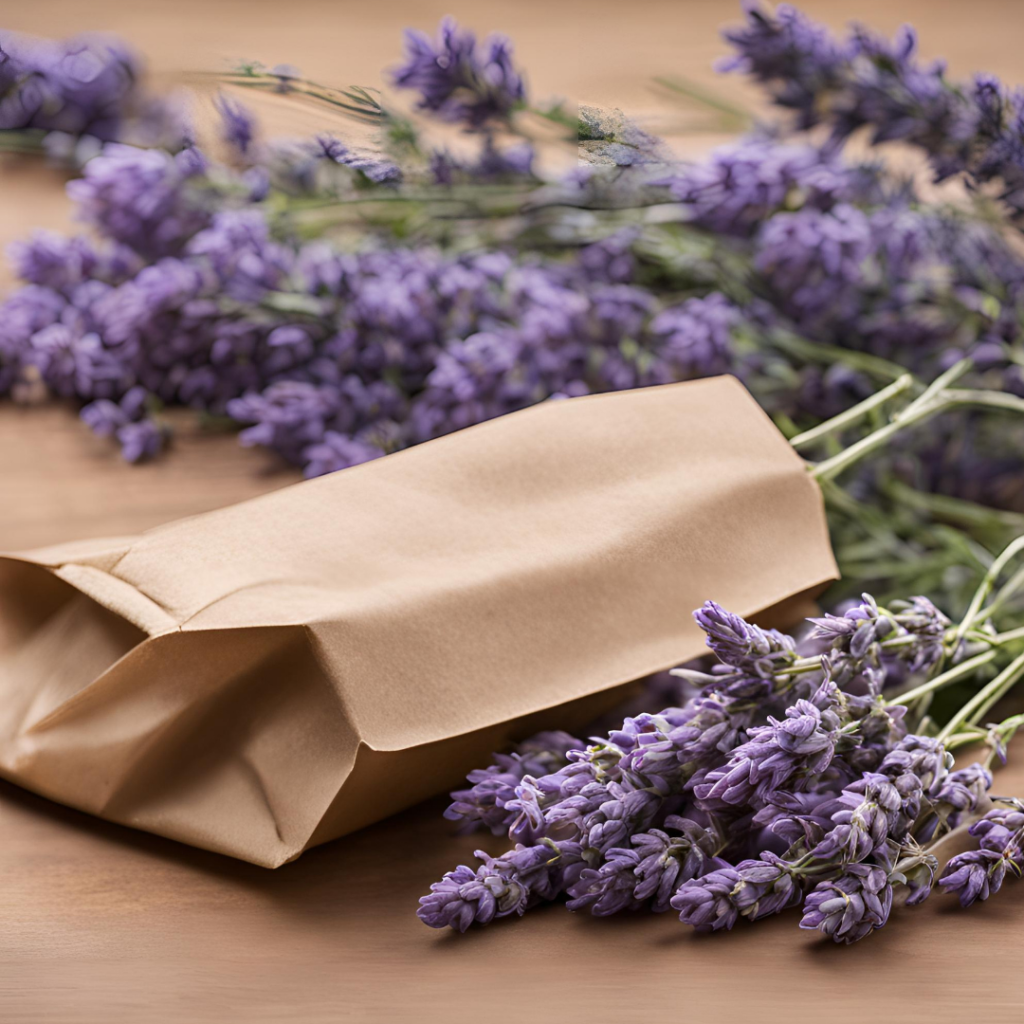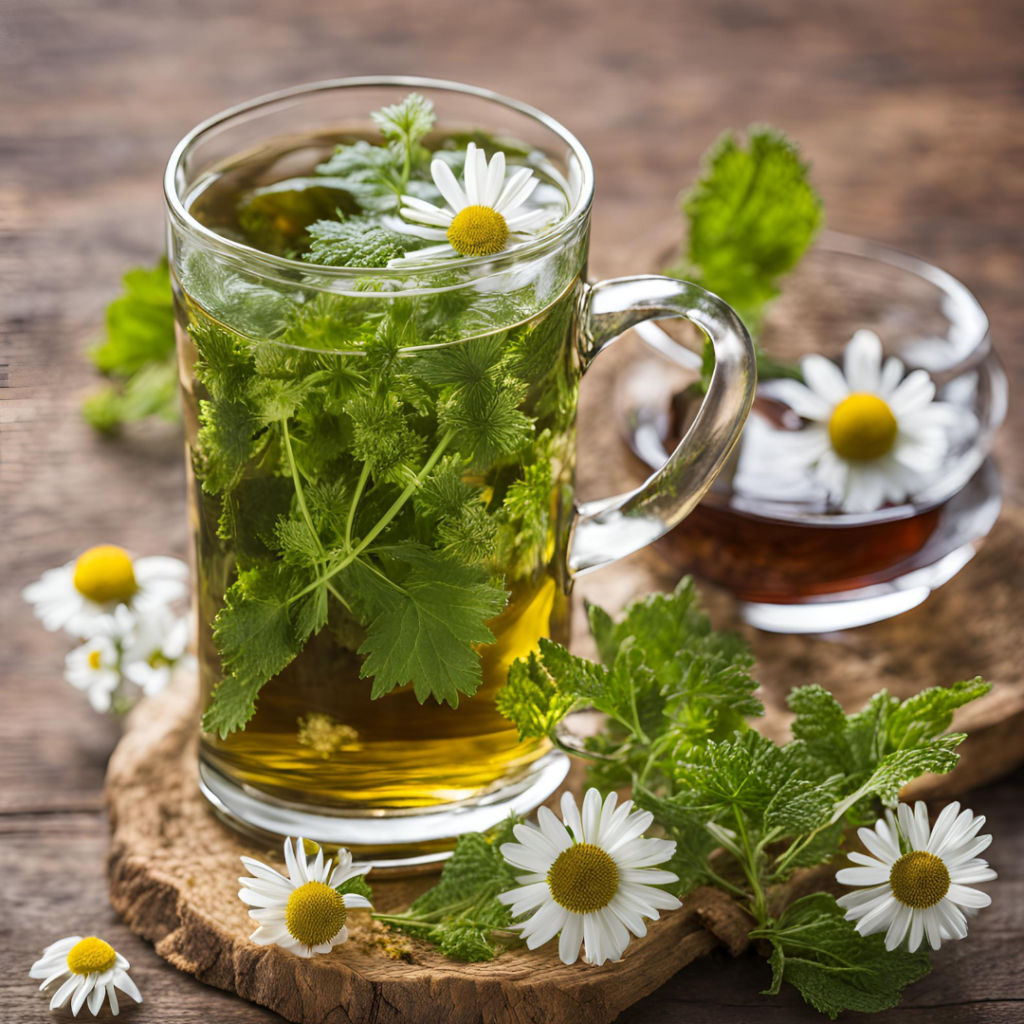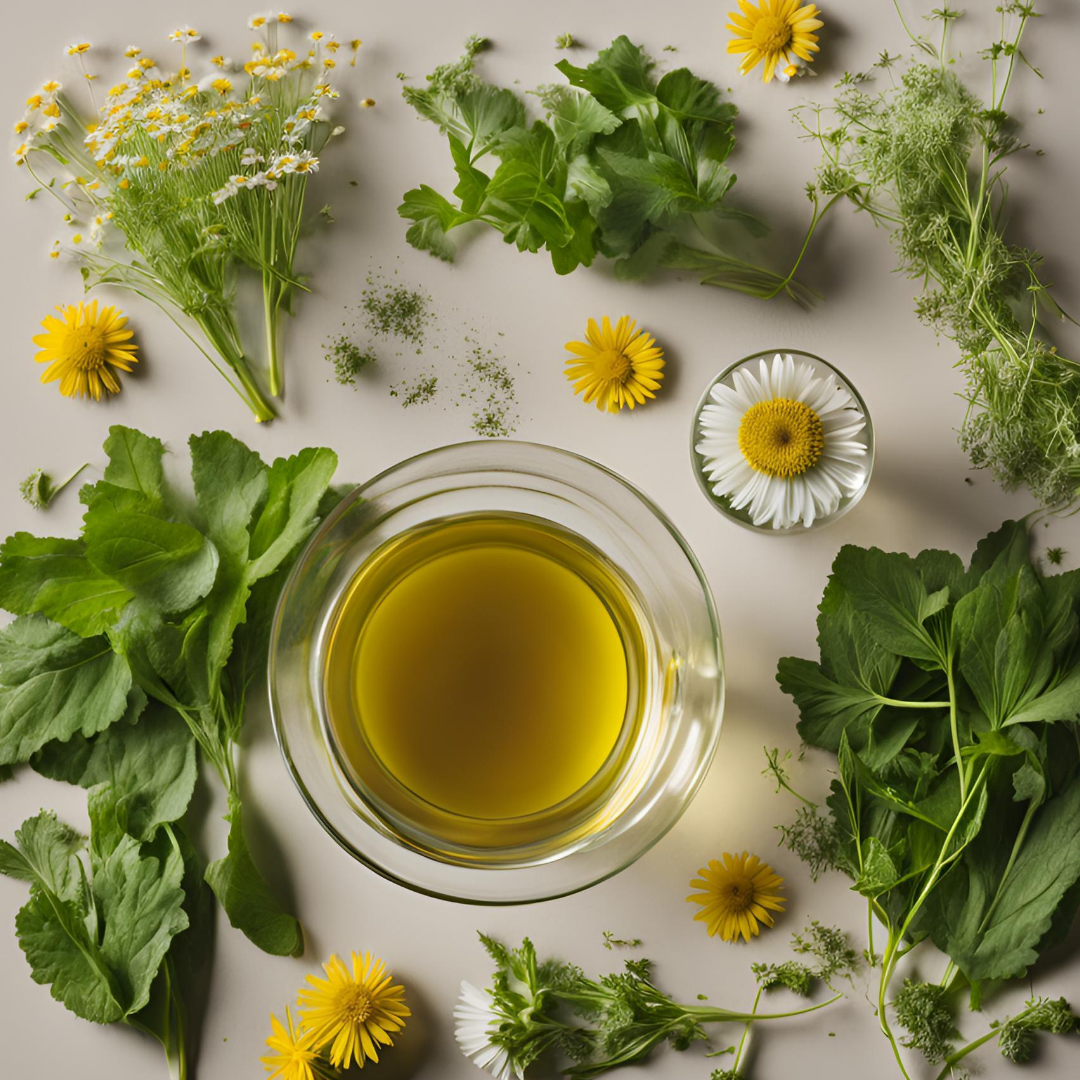In the labyrinth of modern life, where deadlines loom and anxieties simmer, stress has become an uninvited guest, a persistent hum beneath the surface of our days. It’s the tight knot in your shoulders, the racing thoughts at 3 a.m., the gnawing feeling that you’re always a step behind. But amidst the chaos, nature whispers a soothing secret: herbs, the ancient healers, offer a pathway to serenity.
Imagine stepping into a verdant garden, where the air is thick with the scent of lavender and chamomile. The gentle rustle of leaves and the soft chirping of birds create a symphony of tranquility. This is the essence of herbal healing, a return to the natural rhythms of life, a gentle nudge back towards balance.
The Silent Epidemic: Understanding Stress
Stress, in its essence, is a primal survival mechanism, a surge of adrenaline that prepares us for fight or flight. However, in our contemporary world, this ancient response is often triggered by non-life-threatening situations: a demanding boss, a looming deadline, a crowded commute. The result is chronic stress, a relentless cascade of cortisol that erodes our physical and mental well-being. This constant state of alert, where the body perceives everyday challenges as threats, leads to a devastating array of consequences. Beyond the immediate discomfort of anxiety and irritability, chronic stress infiltrates every facet of our existence.
The continuous release of cortisol, the body’s primary stress hormone, disrupts the delicate balance of our physiological systems. It suppresses the immune system, making us more susceptible to illnesses and infections. It interferes with digestion, leading to irritable bowel syndrome, heartburn, and other gastrointestinal issues. Sleep patterns are thrown into disarray, resulting in insomnia or consistently poor sleep quality, which in turn exacerbates stress levels, creating a vicious cycle. Furthermore, chronic stress elevates blood pressure and heart rate, increasing the risk of cardiovascular diseases, the leading cause of mortality worldwide. Cognitive function is also impaired, manifesting as difficulty concentrating, memory problems, and a general sense of mental fog.
On an emotional level, the prolonged exposure to stress hormones can trigger or worsen mental health conditions such as depression and anxiety disorders. It can lead to feelings of overwhelm, burnout, and a diminished sense of well-being. Relationships suffer as irritability and emotional volatility become commonplace. The constant strain of unmanaged stress can lead to social withdrawal, isolation, and a breakdown of support systems.
Therefore, regulating stress is not merely a matter of comfort; it’s a fundamental necessity for maintaining both physical and mental health. Ignoring the insidious creep of chronic stress allows it to silently undermine our quality of life, eroding our resilience and leaving us vulnerable to a host of debilitating conditions. By proactively managing stress through techniques like herbal remedies, mindfulness, and lifestyle adjustments, we reclaim control over our health and cultivate a foundation for lasting well-being. It is an investment in our future selves, a commitment to living a life of vitality and balance.

The Herbal Allies: A Natural Antidote
Herbs are not merely passive bystanders in our quest for tranquility; they are active allies, working in harmony with our bodies to restore balance. They act as gentle nudges, guiding us back to a state of equilibrium.
Herbs are not merely passive bystanders in our quest for tranquility; they are active allies, working in harmony with our bodies to restore balance. They act as gentle nudges, guiding us back to a state of equilibrium.
- Soothing the Nervous System: Like a gentle lullaby, certain herbs quiet the chatter of the mind, easing anxiety and promoting relaxation.
- These herbal allies work by interacting with the intricate network of neurotransmitters in our brains. They often mimic or modulate the effects of calming neurotransmitters like GABA (gamma-aminobutyric acid), which reduces neuronal excitability. This gentle modulation helps to slow down the racing thoughts, ease the physical manifestations of anxiety, such as muscle tension and rapid heart rate, and create a sense of inner stillness. They gently coax the overactive nervous system back into a state of calm, allowing us to regain a sense of control and peace.
- Hormonal Harmony: They act as conductors, orchestrating the delicate balance of hormones, regulating cortisol levels, and supporting adrenal function.
- Adaptogenic herbs, in particular, play a crucial role in this orchestration. They don’t directly manipulate hormone levels but rather support the body’s ability to adapt to stress. They strengthen the adrenal glands, which are responsible for producing cortisol, helping them to function more efficiently. This means that when stress arises, the body’s response is more measured and balanced, preventing the harmful spikes and crashes in cortisol that contribute to chronic stress. By supporting this delicate balance, herbs help to prevent the long-term consequences of hormonal dysregulation, such as fatigue, mood swings, and immune dysfunction.
- The Gift of Sleep: In the realm of dreams, they weave a tapestry of tranquility, facilitating restful sleep, the body’s natural restorative process.
- Sleep is the body’s natural reset button, a time for repair and rejuvenation. Certain herbs possess sedative and soporific properties, gently guiding us into a state of deep, restorative sleep. They can help to quiet the mind, ease physical tension, and regulate sleep-wake cycles. By improving sleep quality, herbs enhance the body’s ability to recover from stress, strengthen the immune system, and improve cognitive function. They create the right enviroment for the body to heal itself.
- Uplifting the Spirit: They act as sunbeams on a cloudy day, lifting the veil of gloom, and restoring a sense of joy and well-being.
- Beyond their physical effects, herbs also have a profound impact on our emotional state. They can help to balance the neurotransmitters that regulate mood, such as serotonin and dopamine. By promoting a sense of calm and well-being, herbs can help to alleviate feelings of sadness, anxiety, and overwhelm. They can also help to cultivate a sense of resilience, empowering us to navigate life’s challenges with greater ease and grace. They bring back the joy of life.
A Tapestry of Herbal Remedies
Let’s explore the individual threads of this herbal tapestry, each herb a unique note in the symphony of stress relief:
Lavender (Lavandula angustifolia): The Fragrant Sanctuary
- Properties: Lavender, with its iconic purple blossoms and calming aroma, is a quintessential herb for stress relief. It’s a gentle sedative, an anxiety soother, and a sleep enhancer.
- Medicinal Action: Lavender boasts antidepressant, anxiolytic, and sedative properties. Its essential oil, rich in linalool and linalyl acetate, interacts with the brain’s neurotransmitters, promoting relaxation.
- TCM Perspective: In TCM, lavender is associated with the Heart and Liver, calming the Spirit and harmonizing the flow of Qi. It’s linked to the Fire element, which governs emotions and the mind.
- How to Embrace Lavender:
- Diffuse lavender essential oil to create a serene ambiance.
- Sip lavender tea before bedtime for a peaceful slumber.
- Indulge in a lavender-infused bath to melt away tension.
- Tuck a lavender sachet under your pillow for sweet dreams.
- Detailed Description: Lavender, a native of the Mediterranean, has been cherished for its therapeutic properties since ancient times. Its delicate fragrance and potent calming effects make it a versatile remedy for stress and anxiety.
Chamomile (Matricaria chamomilla): The Gentle Healer
- Properties: Chamomile, with its daisy-like flowers and calming presence, is a gentle yet powerful herb. It’s a mild sedative, an anxiety reliever, and a digestive soother.
- Medicinal Action: Chamomile exhibits anti-inflammatory, antispasmodic, and nervine properties. It soothes the nervous system and eases digestive upset, often exacerbated by stress.
- TCM Perspective: In TCM, chamomile is associated with the Liver and Heart, clearing Heat and calming the Spirit. It’s linked to the Earth element, which governs digestion and stability.
- How to Embrace Chamomile:
- Brew chamomile tea for a soothing bedtime ritual.
- Use chamomile essential oil in a diffuser for a calming atmosphere.
- Apply chamomile compresses to soothe skin irritations caused by stress.
- Detailed Description: Chamomile, a member of the daisy family, is a versatile herb with a long history of medicinal use. Its gentle calming effects make it suitable for all ages.

Ashwagandha (Withania somnifera): The Root of Resilience
- Properties: Ashwagandha, an ancient Ayurvedic herb, is a powerful adaptogen, helping the body adapt to stress. It boosts energy, improves sleep, and enhances overall resilience.
- Medicinal Action: Ashwagandha exhibits adaptogenic, anti-inflammatory, and immunomodulatory properties. It strengthens the adrenal glands and promotes hormonal balance.
- TCM Perspective: In TCM, ashwagandha tonifies Qi and Blood, calms the Spirit, and strengthens the Kidneys. It’s linked to the Earth element, which governs grounding and stability.
- How to Embrace Ashwagandha:
- Take ashwagandha powder or capsules for daily stress support.
- Brew ashwagandha tea for a warming and grounding beverage.
- Incorporate ashwagandha into your daily smoothie for an extra boost.
- Detailed Description: Ashwagandha, a native of India, has been used for centuries in Ayurvedic medicine. Its adaptogenic properties make it a valuable ally in managing chronic stress.
Lemon Balm (Melissa officinalis): The Uplifting Elixir
- Properties: Lemon balm, with its citrusy scent and uplifting presence, is a gentle yet effective herb for stress relief. It calms anxiety, uplifts mood, and improves sleep.
- Medicinal Action: Lemon balm exhibits anxiolytic, nervine, and antiviral properties. It soothes the nervous system and eases digestive upset.
- TCM Perspective: In TCM, lemon balm calms the Liver Qi, harmonizes the Stomach, and soothes the Spirit. It’s linked to the Wood element, which governs emotions and creativity.
- How to Embrace Lemon Balm:
- Brew lemon balm tea for a refreshing and calming beverage.
- Use lemon balm essential oil in a diffuser for an uplifting atmosphere.
- Add fresh lemon balm leaves to salads or desserts for a citrusy boost.
- Detailed Description: Lemon balm, a member of the mint family, has been used for centuries for its calming and uplifting properties. Its gentle nature makes it suitable for daily use.
The Symphony of TCM and the Five Elements
In the intricate tapestry of TCM, stress is viewed as an imbalance of Qi, the vital energy that flows through our bodies. The Liver and Heart, in particular, are often affected by stress, leading to irritability, anxiety, and sleep disturbances. The five elements—Wood, Fire, Earth, Metal, and Water—provide a framework for understanding these imbalances.
- Wood (Liver): Governs emotions, creativity, and decision-making. Stress can stagnate Liver Qi, leading to irritability and frustration.
- Fire (Heart): Governs emotions, consciousness, and sleep. Stress can disturb Heart Qi, leading to anxiety, palpitations, and insomnia.
- Earth (Spleen/Stomach): Governs digestion, nourishment, and grounding. Stress can disrupt Earth Qi, leading to digestive upset and fatigue.
- Metal (Lungs/Large Intestine): Governs grief, letting go, and immunity. Stress can weaken Metal Qi, leading to sadness and respiratory issues.
- Water (Kidneys/Bladder): Governs fear, willpower, and vitality. Stress can deplete Water Qi, leading to anxiety and exhaustion.
The Energetic and Physical Dance
Herbs work on both the energetic and physical planes, restoring harmony to our bodies and minds.
- Energetic Effects: Herbs can shift our vibrational frequency, promoting a sense of calm, groundedness, and inner peace. They can help us release emotional blockages and cultivate a positive outlook.
- Physical Effects: Herbs can ease muscle tension, lower blood pressure, improve sleep quality, and support digestive function. They can also strengthen the immune system, which is often compromised by chronic stress.
The Herbal Ritual: Incorporating Herbs into Your Life
Herbs are not merely passive bystanders in our quest for tranquility; they are active allies, working in harmony with our bodies to restore balance. They act as gentle nudges, guiding us back to a state of equilibrium.
- Soothing the Nervous System: Like a gentle lullaby, certain herbs quiet the chatter of the mind, easing anxiety and promoting relaxation.
- These herbal allies work by interacting with the intricate network of neurotransmitters in our brains. They often mimic or modulate the effects of calming neurotransmitters like GABA (gamma-aminobutyric acid), which reduces neuronal excitability. This gentle modulation helps to slow down the racing thoughts, ease the physical manifestations of anxiety, such as muscle tension and rapid heart rate, and create a sense of inner stillness. They gently coax the overactive nervous system back into a state of calm, allowing us to regain a sense of control and peace.
- Hormonal Harmony: They act as conductors, orchestrating the delicate balance of hormones, regulating cortisol levels, and supporting adrenal function.
- Adaptogenic herbs, in particular, play a crucial role in this orchestration. They don’t directly manipulate hormone levels but rather support the body’s ability to adapt to stress. They strengthen the adrenal glands, which are responsible for producing cortisol, helping them to function more efficiently. This means that when stress arises, the body’s response is more measured and balanced, preventing the harmful spikes and crashes in cortisol that contribute to chronic stress. By supporting this delicate balance, herbs help to prevent the long-term consequences of hormonal dysregulation, such as fatigue, mood swings, and immune dysfunction.
- The Gift of Sleep: In the realm of dreams, they weave a tapestry of tranquility, facilitating restful sleep, the body’s natural restorative process.
- Sleep is the body’s natural reset button, a time for repair and rejuvenation. Certain herbs possess sedative and soporific properties, gently guiding us into a state of deep, restorative sleep. They can help to quiet the mind, ease physical tension, and regulate sleep-wake cycles. By improving sleep quality, herbs enhance the body’s ability to recover from stress, strengthen the immune system, and improve cognitive function. They create the right environment for the body to heal itself.
- Uplifting the Spirit: They act as sunbeams on a cloudy day, lifting the veil of gloom, and restoring a sense of joy and well-being.
- Beyond their physical effects, herbs also have a profound impact on our emotional state. They can help to balance the neurotransmitters that regulate mood, such as serotonin and dopamine. By promoting a sense of calm and well-being, herbs can help to alleviate feelings of sadness, anxiety, and overwhelm. They can also help to cultivate a sense of resilience, empowering us to navigate life’s challenges with greater ease and grace. They bring back the joy of life.
Finding My Ground: The Power of Presence
Personally, I’ve found that one of the most significant challenges I face is grounding myself in my own energy each morning. It’s easy to get swept away by the day’s demands, to feel scattered and disconnected. That’s where lemon balm tea has become my daily ritual. Its gentle citrusy aroma and calming properties help me to center myself, to bring my focus back to the present moment.
Being present, being in the now, is crucial for managing stress. When we’re caught up in worries about the future or regrets about the past, we lose our connection to the present moment, where peace resides. By anchoring ourselves in the now, we can quiet the incessant chatter of the mind and find a sense of stillness amidst the chaos. Herbs like lemon balm can act as gentle reminders, helping us to return to the present moment and cultivate a sense of inner peace.
Herbal Rituals: Weaving Calm into Your Day
To further enhance your stress-relief journey, consider incorporating these herbal rituals into your daily life:
- Mindful Tea Ceremony: Prepare your herbal tea with intention, focusing on the aroma, the warmth of the cup, and the taste of the herbs.
- Aromatic Meditation: Diffuse calming essential oils like lavender or chamomile while practicing mindfulness or meditation.
- Herbal Bath Ritual: Add Epsom salts and calming herbs like lavender or chamomile to your bath for a soothing and restorative experience.
- Gratitude Journaling: Combine your herbal tea ritual with gratitude journaling, reflecting on the positive aspects of your life.
Ready to embark on your herbal stress-relief journey? Explore our selection of calming herbal teas and tinctures at Ingwaz. We offer carefully crafted blends designed to soothe your mind, body, and spirit. Embrace the power of nature and reclaim your inner peace.
A Final Note of Serenity
In the tapestry of life, stress may be an inevitable thread, but it doesn’t have to define the entire picture. By embracing the gentle wisdom of herbs and cultivating practices of mindfulness, we can weave a tapestry of tranquility, resilience, and joy.

